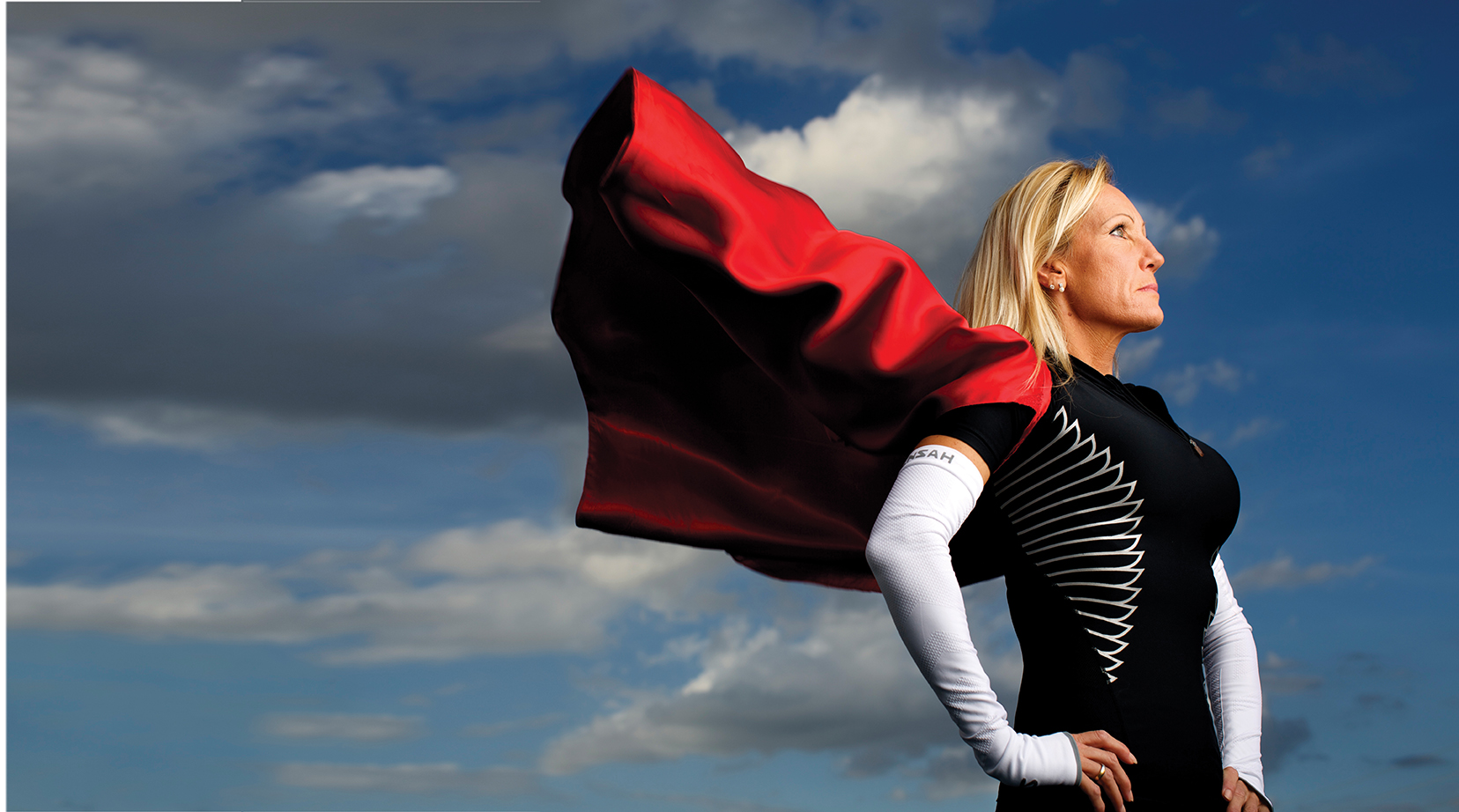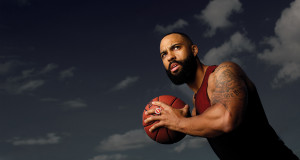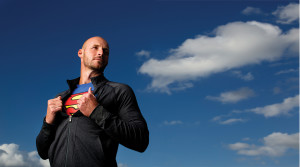Everyone has a bad race, workout, or run — even elite athletes. We take a look at the humbling yet heroic tales of three of Southwest Florida’s most inspiring competitors.
You never knew what hit you.
One minute, you’re running along at a good clip, on track to make this race your personal best. The weather is perfect, your playlist is rocking, your legs are thrumming with energy, promising to carry you over the finish line with momentum and alacrity. Then, something happens. Your foot comes down wrong. Or another runner brushes by you with just a little too much force. Or you simply stall; that dreaded realization at mile 22 that maybe you don’t have as much left in the tank as you thought you did.
Whatever the reason, the result is the same: you hobble across the finish line — if you even do at all — haunted by a crippling feeling of shame and humiliation. All those months of training so hard, your dream of breaking the four-hour mark, up in smoke, along with your sense of dignity and pride. You still cringe to think about it to this day. Trust us, we’ve all been there at least once.
Related: How to Overcome Sport Performance Anxiety
But having a humbling moment on the court, on the road, in the ring, or at the gym isn’t just something casual competitors experience: It happens to world-class athletes, too. Think Roger Federer fondly recalls his heartbreaking, five-set 2003 Davis Cup loss to Lleyton Hewitt that left him in tears back in the locker room? And we highly doubt Oliver McCall revels in the memory of his epic meltdown during the 1997 Heavyweight Championship fight, which ended with a Lennox Lewis victory and McCall sobbing in his corner of the ring.
However, what keeps elite athletes in the game — sometimes even better and stronger than they were before — is the lessons learned from having a bad day, and the ability to channel those lessons into added chutzpah, strength, or resolve. In fact, one bad day can be downright game-changing (in a good way) to an athlete’s career, proportional to the amount of humiliation, injury, or failure suffered.
There are even some uncanny parallels to an archetypal superhero’s journey — the humble origins, the promising rise to glory, the subsequent accident or nearly fatal moment that triggers the manifestation of hero’s full powers, the triumph over evil (or, in competitive terms, an opponent or clock), and the emergence of a true hero.
Here, we focus on three of Southwest Florida’s most derring-do athletes as they share their inglorious tales of races, drills, and tourneys gone wrong. They tell us how they heroically fought back to save the clock, their performance — even a promising career — is both inspiring and, yes, a little superhuman.
Faster than lightning
In the annals of superhero lore, origin stories often involve a freak accident, leading to the otherworldly development of a hero’s powers. Such was the case with Barry Allen, who got doused in chemicals after a lightning bolt hit them, imbuing him with literally lightning-fast reflexes and speed — thus, The Flash was born. Peter Parker developed his infamous “Spidey sense” and web-shooting abilities after a life-changing bite from a radioactive spider.
Team USA duathlete and Elite Master Runner Lisa Buohler’s story begins with a horrific accident that threatened to sideline her permanently, but instead transformed her into a more formidable competitor than ever. Almost four years ago, an SUV rear-ended her bike while she was out training, throwing her 20 feet and landing her in the ICU for six days with five spinal fractures, a fractured sternum, patella, and pelvis, a bruised lung, and a lacerated liver. She spent 12 weeks in a back brace, but thanks to her peak physical condition before the accident — along with some serious grit and determination — she vowed to return to elite form and compete again.
“Everything changed [after the accident],” she recalls, “My doctor finally said after five months, ‘if I give you the OK to running again, just promise me you’ll go easy.’”
Not only did she start running again, less than a year later, but she completed the 2012 Boston Marathon with a 3:48:51 finish. “It was an amazing feeling that I had been able to complete 26 miles after [the extent of] my injuries.” Encouraged by the result in Boston, she gradually upped her mileage and returned to World Class form. She went on to win two more duathlon National Championships, culminating in an invitation to compete in the ITU Powerman Long Distance World Championships last September in Zofingen, Switzerland — the same race she had been ramping up for right before her accident.
Of course, she couldn’t help but be a little nervous to compete at such a high level again, but she kept her expectations reasonable. “[I thought], this is a lot to ask from my body, so I just want to finish.”
With a warm, sunny day in Zofingen on her side, she soldiered through the first 10K run, pacing herself up brutal climbs with as much as a 16 to 25 percent elevation increase. From there, it only got better: her transition to the bike was smooth, and though the continual switchbacks, inclines, and sharp turns in the 150K race were a perpetual reminder of why the Powerman Worlds are the toughest duathlon in the world (hello, Alps!), Buohler was emboldened by her time. With nearly 20K to go, she confidently increased her speed on the downhill when she realized she was in the lead.
She only had a second to realize she had taken a particularly nasty “S” curve way too fast before her front wheel clipped the curb and she went headfirst into a mud bank beside the road.
Related: Mud Run Gear That Plays As Tough As A Mud Runner
“I had a little too much courage,” she recalls, “I got excited because my time was so good. But when I crashed, I wasn’t sure if I had once again done serious injury to my spine. Luckily, the mud took most of the impact.” Still, all was not right. Her breathing was painful, there was pain in her mid-back, and her thumb was dislocated. And, though the frame on her bike was cracked, it worked well enough to get her to the finish line.
Disappointment, anger, and pain coursed through her as she transitioned to the final run: a daunting 18-miler full of more wicked climbs. Pain won out; she could barely breathe and there was stabbing in her back when she tried. “I decided I would just take it one mile at a time. It was the first time ever [that] I had to walk a little bit in a race … it was extremely hard seeing people overtake me.”
But little by little, she made progress, rehydrating at the last few water stops and taking heart when she spotted other competitors (including the previous year’s men’s winner) walking some of the course, too. “I suddenly realized and appreciated that it was not about the end result, but the whole journey. And we don’t realize what we are capable of until we try.”
She did more than try. She ended up taking fourth place overall in her age group. And, as she was shocked to find out later, her 18.6-mile, unforgiving run in the Alps had been accomplished with cracked ribs, torn ligaments in her back, and a dislocated thumb.
Incredible athletic feat? Of course. Superhuman skills? Buohler doesn’t think so. Instead, she ascribes her success to determination and a fierce competitive spirit. “Sometimes your very worst incidents can be enough to give you that kick,” she says, “because if you’ve got a really deep love of sports, you’re always going to have that desire to challenge yourself.”
Despite her modest assessment, we have a distinct feeling that even The Flash would be proud.
Tougher than nails
Sometimes a superhero’s extraordinary physical powers have been there all along, and it takes a traumatic event to awaken their full potential. Wolverine’s natural bone claws and super-heightened senses, for example, emerged for the first time after he witnessed the death of his parents.
For CrossFit Lawless owner and Level 1 coach Marcus Watts, his first semester playing Division 1 college basketball at McNeese State certainly qualified as traumatic.
As a promising high school player in Anchorage, Alaska, Watts had every reason to believe in his prowess on the court. He was a McDonald’s All-American athlete and talented center. He was on a winning team, lead by point guard and future Heat player Mario Chalmers. Recruited to McNeese State, Watts spent the pre-season flourishing on his new team with the kind of confidence only an 18-year-old can muster.
That all changed on day one of regular season practice. “We broke into drills, and there was this one drill [where] I’m in the middle of the paint and the ball gets passed from the key to the guard in the corner and I have to make three to four stops. Either I’m going to foul them and the drill is going to go on, or I stop them and drill is going to end,” he recalls. But neither of those things happened. Instead, Watts mentally unraveled right there on the court in front of his new coach, teammates, and onlookers.
“So it’s three minutes per group for this drill, and it’s not going well at all … I’m getting scored on left and right, I’m not making my stops, and the point guard is blowing past me every time. In fact, I think one time he even put the ball between my legs.” Fatigue and humiliation froze Watts to the spot as he endured the drill for an excruciating eight minutes, all while getting ripped apart by his coach.
“Literally, I got to the point where I couldn’t move, like my feet were in quicksand, and I can hear coach yelling but I’m not even hearing what he’s saying. Finally, I did hear — when he told me to get off his court.”
Related: I Came to be Awesome at Crossfit, Not Skinny
But that disastrous practice continued to haunt him long after he left the court. He went from being a motivated, up-and-coming athlete to a scared kid who dreaded being in practices and games, and couldn’t stand to watch film of himself to witness how terribly he was playing.
“[At the end of semester] Coach called me in and asked how I was doing and I told him, ‘not good at all.’ I didn’t know how to turn the corner and be motivated. Then he said this, and it changed my life: ‘You’re looking at things the wrong way. For you, practices are your games. You need to enjoy being in your games. If something [bad] happens on the court, you have to be positive and know why we’re saying it because we see potential in you.’”
Something in Watts clicked with his coach’s advice, and it changed the way he approached his game. He celebrated every little victory, no matter how seemingly minor, and started to really believe in himself and his abilities again. Soon, he was starting games and boasting double-doubles. “I went from being 13th off the bench to being in the newspapers every week. And it was all because I finally believed no one could stop me as long as I put the effort in and kept a positive attitude.”
Watts never looked back. After coming into his own as a player and embracing his talents, he finished out his college career at Florida Gulf Coast University, then played overseas professionally from 2006 to 2010. By the time he returned to Southwest Florida, he knew he wanted to put down roots in Estero, where he eventually started a CrossFit gym of his own.
The lessons learned from McNeese State never left him. To motivate and inspire his own CrossFit athletes, he employs the same mental techniques his college coach had used on him. “[His advice] made me who I am today,” he says, “I tell my athletes, you gotta believe you can do [the workouts] and say it over and over again to yourself until you believe it. Because whether you believe it or you don’t, you’re right.”
Stronger than iron
When direly injured, Tony Stark, better known as Iron Man, realizes that shrapnel from his captors’ booby trap is moving fatally towards his heart, he does what any genius billionaire engineer would do: he constructs a magnetic chest plate and a turbo-powered suit of armor. From this position of vulnerability and mortal weakness, a superhero was born.
CrossFit ATC head coach and director Derek Newborn doesn’t wear super-powered, cutting-edge armor, but he was feeling the weakness of nerves at the start of last August’s Crush Games.
The Crush Games, one of Southwest Florida’s largest, most celebrated CrossFit competitions, sees over 1,000 of the nation’s most elite athletes WOD it out in a three-day, traditional-style elimination format. Did we also mention it’s held at the BB&T Center, a 19,000-seater arena that literally puts CrossFit on center stage in front of a massive audience? So, yeah, there’s that.
To prepare for his first-ever Crush Games, Newborn had added in the WOD (workout of the day) he knew he’d be performing to his regular workout regimen. “I had been practicing the first [WOD] — which was two WODs rolled into one — the week before and could never finish.” However, as a lifelong athlete, personal trainer, and serious CrossFit competitor, he nevertheless believed he would crush it in front of a dizzying number of spectators, including fellow CrossFitters, his family, and his new girlfriend.
Within the first two minutes of his very first WOD, however, it all went south faster than you can say “kryptonite.” “I went out super fast and immediately knew I was in bad shape because I finished way too quick — there were lots of burpees involved.” A wave of nausea hit him, and, although he was hydrated and well-prepared before competition, he started to hyperventilate from overexertion. Once time ran out, he started to gag, then dry heave, then finally his lowest point: an ignominious run behind the bleachers, where he threw up everywhere.
Related: Quitter or Fitter? Tips to Stay Crossfit Committed
“[In competition], you’re always worried about things going wrong, but it literally can’t go worse than throwing up in front of everyone in an arena,” he laughs, “Not a good look.”
Even more nerve-wracking, he still had four more workouts to go before the end of the first day, and his start was hardly optimistic. However, once he refueled, he felt good enough to not only complete the workouts, but even set a PR by the end of the day and made it to finals on Sunday. He calls it one of the best experiences he’s ever had, despite the initial anxiety.
The advice he would give fellow athletes? “Never give up,” he says, “Keep fighting and take it one day at a time; it’s never as bad as you make it out to be.” Speaking as someone who gave a steely, incredible performance and bested his nerves at his first major CrossFit tourney, Newborn is onto something us mere mortals should find encouraging in our own fitness journey.
Looking for More Inspiration? Read on…
Good Habits Die Hard: Triathlete Sarah Piampiano Discusses Motivation, Perseverance, and Balance



